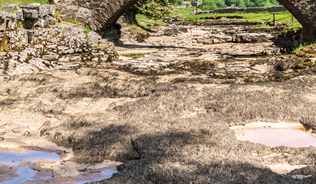Are you thinking about innovation in your work as a business or member of a research group? Do you have a good idea for an innovative product or service? Innovate UK, formerly known as the Technology Strategy Board, is a major funder of applied research and development by UK industry and universities. Some £0.5 Billion is allocated as grants every year, to stimulate innovation in UK science and technology, and to assist in growing the UK economy.
The Knowledge Transfer Network, part of the Innovate UK ‘family’, can provide support to assist you to find collaborators, advise you of forthcoming funding opportunities, and help you to promote a climate of open innovation. The KTN employs some 120 technical specialists who provide independent and free advice, and cover all types of technologies from medical to chemical, transport to ICT, and the associated business systems that underpin them. There is a specialist environmental services and sustainability team. At present the KTN has a strong focus on sustainability in manufacturing industry, the drive for resource efficiency and the circular economy, and carbon management. These are areas where scientists and specialists in environment-related disciplines, can find genuine opportunities for collaboration.
In this webinar Professor Carolyn Roberts introduces the reasons for research collaboration amongst businesses and researchers, outlines the support that is available from the KTN for individuals and organisations of different types, and explains how to get started in the search for funding, followed by a brief Q&A session.
If you have any further queries, Carolyn is happy to receive questions by email.
Professor Carolyn Roberts is a 'Specialist' with the Knowledge Transfer Network (KTN), based at the University of Oxford. KTN is part of UK Government-funded agency Innovate-UK 'family', that links businesses to universities to catalyse innovation in environmental technologies. She is also a Vice-President of the IES, and co-edited the Institution's latest thematic journal issue, which looked at 'Novel materials and circular economy'.





